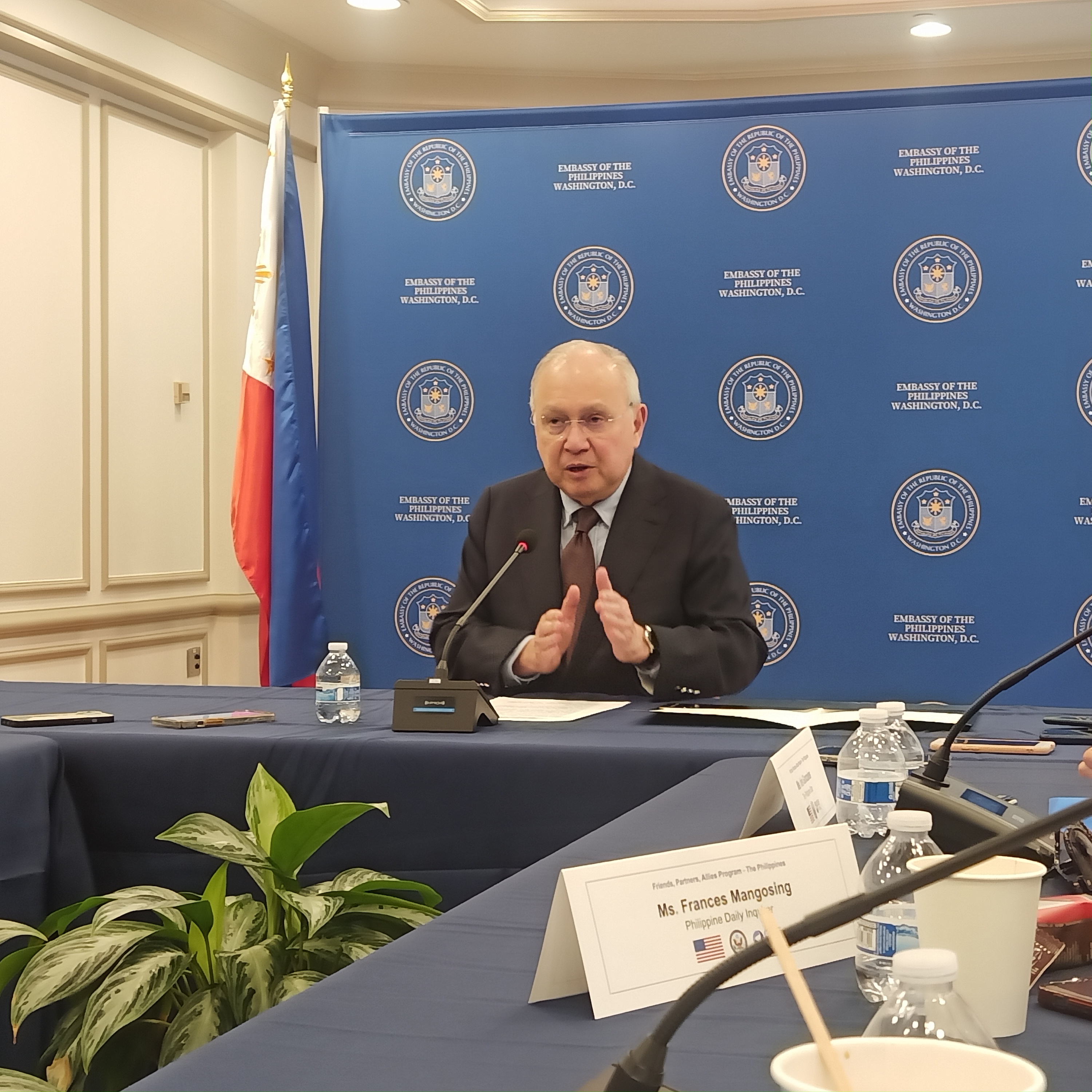West Philippine Sea conflict: PH, US agree to collaborate on fighting China's 'information manipulation'

WASHINGTON D.C., United States – The Philippines and United States have agreed to work together to counter China’s alleged manipulation of information to push its interests in the West Philippine Sea (WPS).
Philippine Ambassador to United States Jose Manuel Romualdez confirmed this to reporters as Philippine and US officials concluded the 11th Bilateral Strategic Dialogue (BSD) here on Tuesday, April 23 (US time).
In a joint statement, the Philippines and US governments said that they have agreed to “deepen collaboration on countering foreign information manipulation.”
"Everytime something happens in the West Philippine Sea, China always says we're putting up the aggressive behavior," Romualdez said on Wednesday, April 24 (US time).
“We will be using cybersecurity measures because they use disinformation manipulation via social media. Also, more accurate information to counter false narratives,” he added.
Aside from that, the Philippines and US governments also decided to consider and develop procedures and protocols on cooperative maritime law enforcement operations in the WPS.
"We are going to to stop aggressive moves from China," the Filipino envoy said. "We're hoping we can include Australia and Japan."
The US State Department had said last year that China’s approach to information manipulation includes “leveraging propaganda and censorship, promoting digital authoritarianism, exploiting international organizations and bilateral partnerships, pairing cooptation and pressure, and exercising control of Chinese-language media.”
It accused Beijing of using “false or biased information” to “promote positive views of the PRC and the Chinese Communist Party (CCP)” and to “[suppress] critical information that contradicts its desired narratives” on certain issues such as the WPS conflict.
In January, the US State Department announced a new tool to counter foreign nformation manipulation, the Framework to Counter Foreign State Information Manipulation.
It said the framework will "deepen cooperation between like-minded partners, establish a common operating picture, and support the development of resilient, fact-based information eco-systems.
The framework is based on five Key Action Areas: national strategies and policies; governance structures and institutions; human and technical capacity; civil society, independent media and academia; and multilateral engagement.
In the Philippines, the national government has implemented a “transparency initiative” to "expose" China’s aggression in the WPS.
China claims a major portion of the South China Sea, including parts within the Philippines’ 200-nautical mile exclusive economic zone (EEZ). This, despite a 2016 arbitral ruling which invalidated their claims into the maritime area.
It has maintained ita presence in the WPS by deploying coast guard, navy, and maritime militia vessels. It also resorted to dangerous maneuvers, use of water cannon, and even military-grade laser to try to block Philippine vessels from resupply missions in Ayungin (Second Thomas) Shoal.
Under the present administration, the national government has strengthened its alliance with the US and other “like-minded nations” to assert its sovereignty over the WPS.
This was criticized by China which warned Manila that involving external forces into their territorial dispute will escalate tension in the WPS.
Aside from the misinformation and disinformation, Romualdez also said that there are local forces that echo the false narratives being spread by China.
“Right now, we can see that there seems to be a very strong reaction coming from those that are against the alliances that we've been able to have in the past. I don’t know what their purpose is but they're now trying to put the fear factor into these alliances that we're working at and saying that we just want to be part of a proxy war,” he said.
Romualdez described the allegations as “totally false.”
Ties to economic gains
Meanwhile, Romualdez said that as the government strengthens its defense and security capabilities to defend the country’s interests in the WPS, it also leads to economic gains.
“There's been an increase of up to 90 percent of investments coming in the Philippines, and that will obviously be the key, the key element of how we're going. Connecting economic security to our defense is paramount because we need the wherewithal obviously to be able to buy the type of equipment to support the modernization of our armed forces so that we were able to defend ourselves,” he said.
“We don't want to be dependent on countries like the United States just purely to simply get the aid or whatever it is on. The bottom line is that we're strengthening our country economically to benefit the people at the same time,” he added.
Apart from the investments coming into the country, the US government is also eyeing to provide $128 million for the infrastructure development of the nine Enhanced Defense Cooperative Agreement (EDCA) sites in the country.
On top of that, a bill has been introduced at the US Senate seeking to provide the Philippines with a $2.5 billion budget – or $500 million a year in foreign military financing (FMF) grant assistance over five years – so it could beef up its defenses against China’s aggression.
“Investments are coming in because there is more confidence in the stability of the country being able to repel, as I said, any kind of coercion whether economic or in the area of sovereign rights, environment, and so forth and so on. We're on the right track as far as that’s concerned,” Romualdez said.